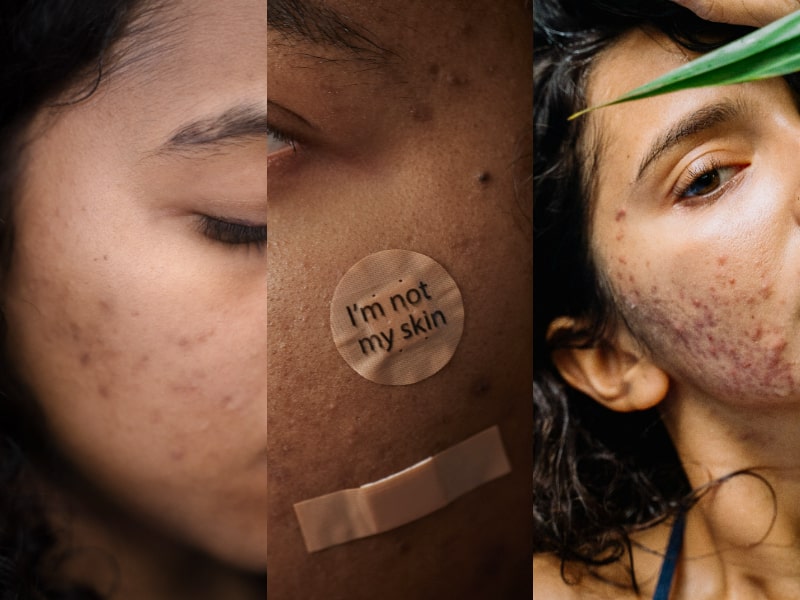Trying new products is downright frightening because you never know which skincare ingredients to avoid or if it’s going to cause flare-ups, develop rashes, or any form of allergic reaction. If you’ve been struggling with sensitive skin, it will take some time for your skin to bounce back to its healthy, glowing state. As sensitive skin reacts strongly to UV rays, hot water, or other environmental factors, it is good to know skincare ingredients and your skin condition before trying on a new product. Read on so your mind and skin can feel totally at ease.
What Is Sensitive Skin?
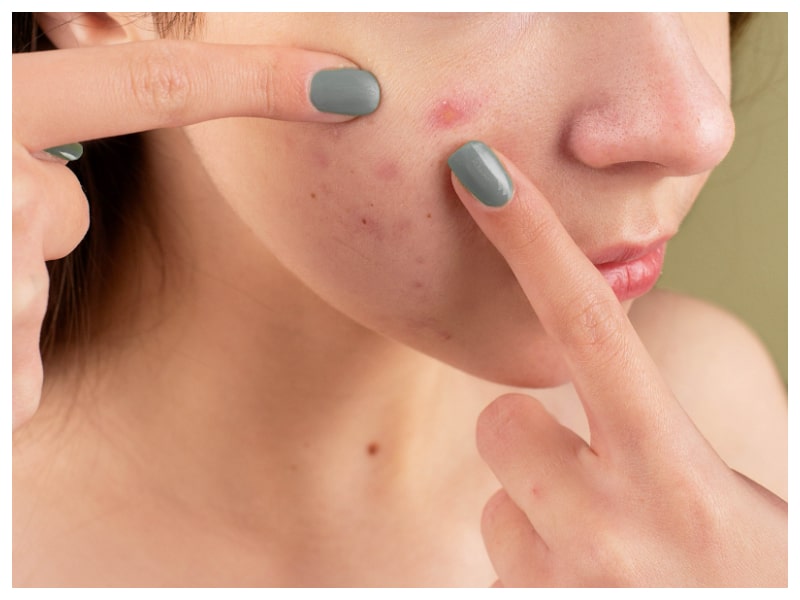
Sensitive skin means your skin is more prone to reactions or easily irritated. Those with sensitive skin are more prone to experience burning, itching, redness, stinging, and skin patches. It is a common skin condition and treatable by dermatologists.
What Are The Symptoms Of Sensitive Skin?
You may be experiencing these symptoms if you have sensitive skin:
- Rashes
- Eczema
- Sunburns
- Hives
- Itching, stinging or burning without a visible rash
It is best to consult a healthcare provider to get your skin checked when your skin feel uncomfortable.
Can Sensitive Skin Use Niacinamide?
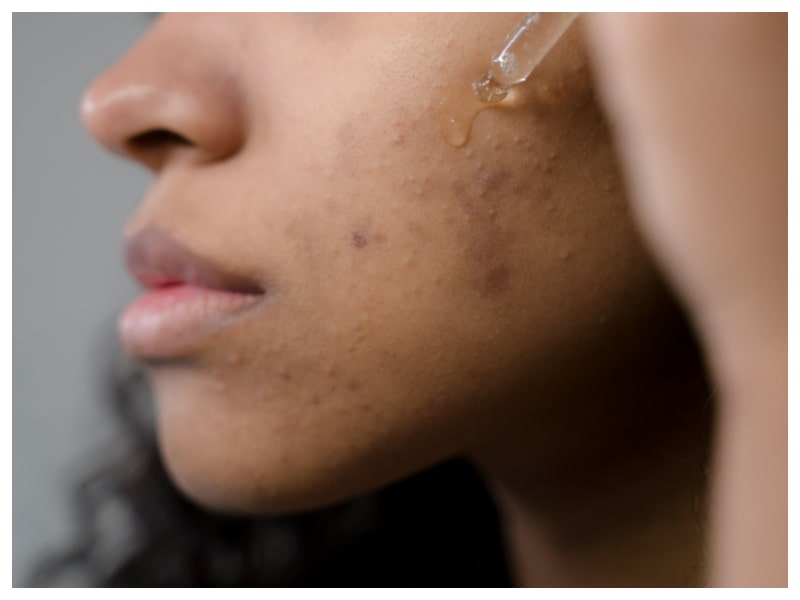
Yes, people with sensitive skin can use niacinamide. It is a natural anti-inflammatory ingredient that is great at calming irritated skin. Topical niacinamide prevents moisture from leaving the skin, hence improving hydration.
What Skincare Ingredients To Avoid If I Have Sensitive Skin? Let’s Find Out!
The skincare product that works wonders on your friend’s beautiful face could cause redness or inflammation if it doesn’t suit you. It’s important to understand the ingredients that caused these reactions. Here are the skincare ingredients to avoid or eliminate from your routine.
Alcohol
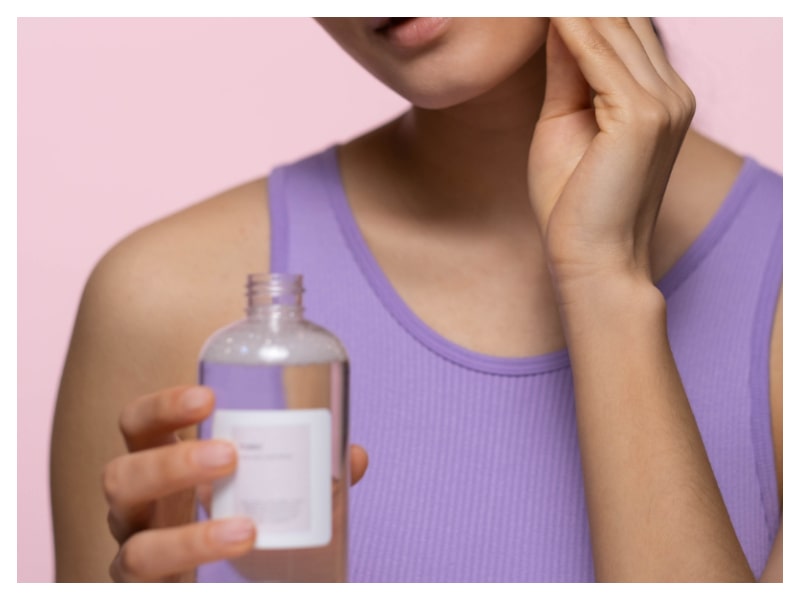
Alcohol is one of the skincare ingredients to avoid as it can be a death sentence to your sensitive skin. Alcohol may be good at controlling oil, delivering a matte finish look, but it might also strip off your skin moisture. Your skin will be dry, irritated, itchy, and unable to rejuvenate itself. There are a lot of creams and toners (astringents) with alcohol as one of their main ingredients. Make sure your skincare products do not have ethyl or denatured alcohol. Only use products like moisturisers for sensitive skin to avoid uncomfortable skin conditions.
Essential Oils
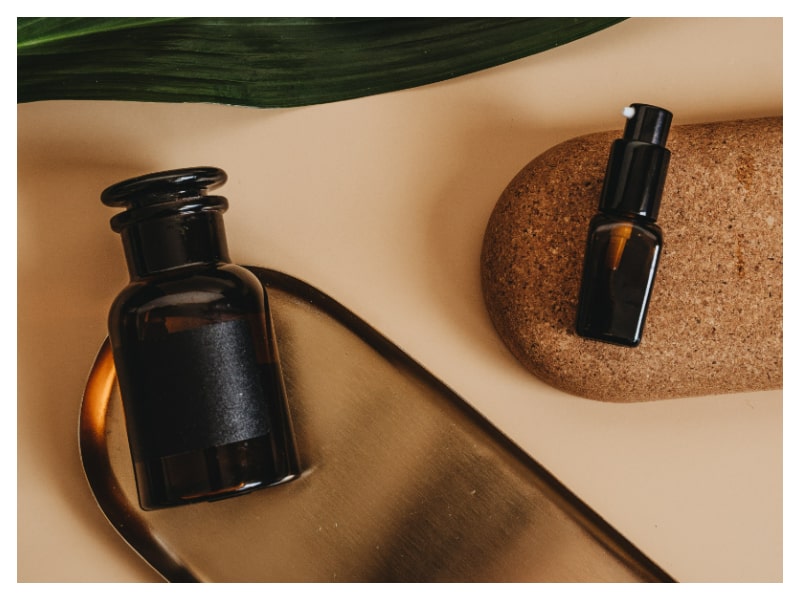
Did you know certain skincare ingredients like bergamot may induce a photo-allergic response when exposed to sunlight? It increases the risk of sunburn or rashes when you’re out in the sun. Not just that, citrus, lavender, mint, and tea tree oil also should be used with caution or eliminated completely as they may cause negative reactions to the skin. Even though many acne skincare products are infused with tea tree oil, they may cause dry skin and redness due to high concentrations. It can be safe when applied to your skin in diluted concentrations.
Fragrance
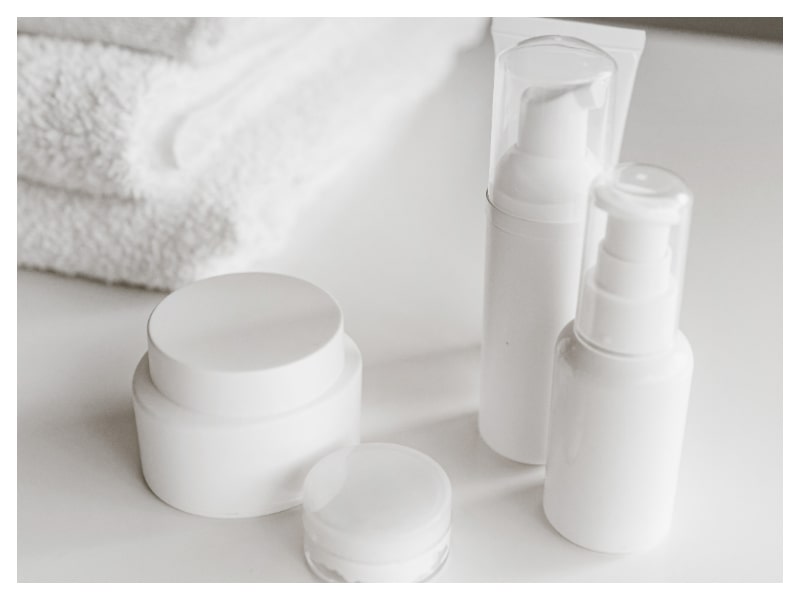
Why do you need synthetic fragrance as part of skincare ingredients when you can opt for fragrance-free or organic ones? Skincare for sensitive skin is fragrance-free for a reason! Skincare manufacturers add fragrance to products to mask the not-so-fragrant scent from some skincare ingredients.
A heavily scented product angers sensitive skin types as it may contain harsh chemicals. Even if you have normal skin, it is best to avoid fragrances at all costs. Also, pay attention to “fragrance-free” versus “unscented” labels. “Fragrance-free” means no additional or synthetic fragrances were added to the product whereas unscented” means something has been added into the formulation to camouflage the original scent of the product.
Harsh Exfoliants
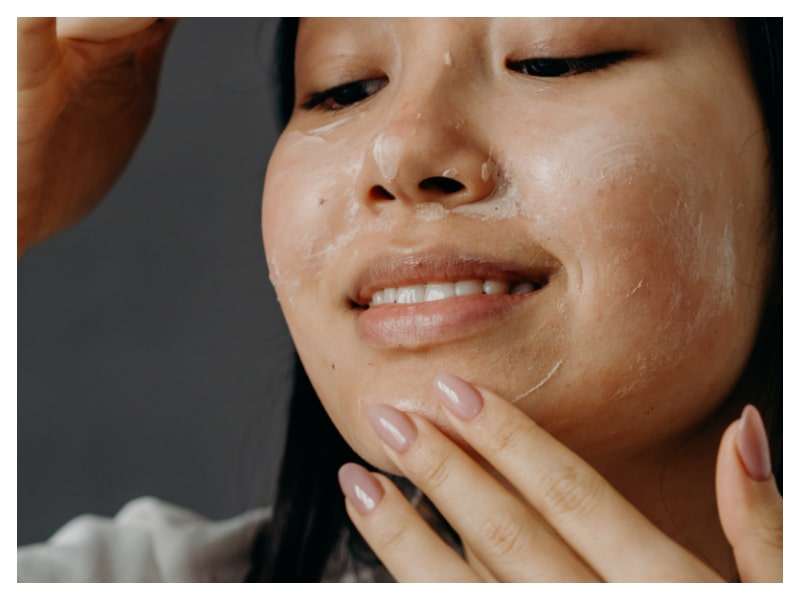
Chemical exfoliants such as retinol and glycolic acid are great at speeding up skin cell turnover rate and combating a lot of skin problems. But if your skin is sensitive, you should approach chemical exfoliants with caution if you’re eager to clean your pores and achieve baby-smooth skin.
Retinol benefits surpass other skincare ingredients and it is like a gold elixir to all skin types. Sadly, it isn’t one-size-fits-all. A sensitive skin type cannot tolerate super strength retinol when applied to the skin regularly. Retinol’s side effects may include dryness, itchiness, skin patches, acne breakout, and even eczema flare-ups. You might ask, can sensitive skin use retinol? YES, for chemical exfoliant newbies, you might start small and build your tolerance from time to time.
As for glycolic acid, it is safe to be used on sensitive skin if it only contains a 1% – 2% concentration. Anything with a higher glycolic acid ingredient may strip your skin’s protective barrier. Using chemical exfoliant at a lower concentration also makes it easier to manage your skin if it shows any signs of irritation.
On top of that, keep exfoliation at a minimum when using a physical exfoliant or scrubs. Scrubbing daily is a big no-no as you can end up doing more harm than good.
Sulfates
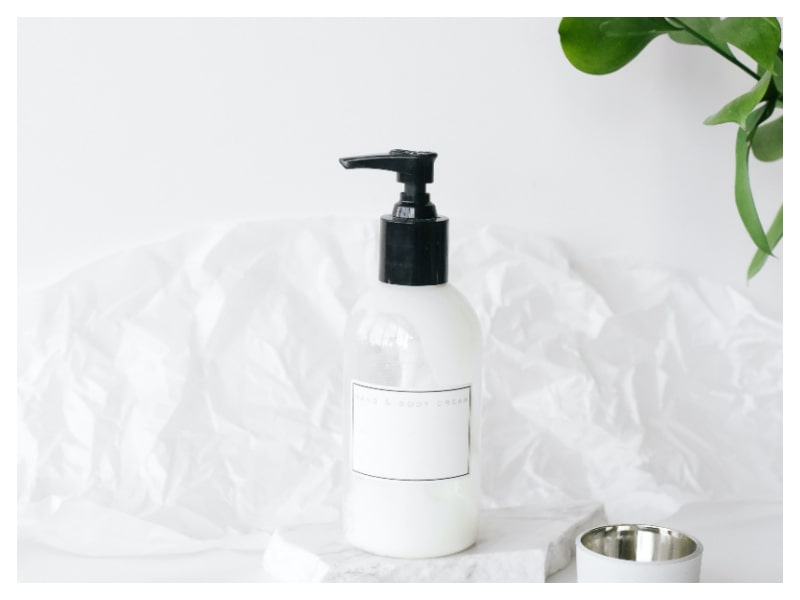
Sulphates like Ammonium Lauryl Sulphate and Sodium Lauryl Sulphate are often found in shampoos but they are also infused in some facial cleansers and sunscreens. Though sulphates do not cause cancer, they are still one of the skincare ingredients to avoid as they may trigger inflammation. If you have sensitive skin, you may suffer from eye irritation, clogged pores, and acne. Dropping sulphates from your routine can have a major impact on your skin. The result? Your best skin yet.
Do’s And Don’ts For Sensitive Skin

Too many of us end up with irritable skin as the result of putting too many chemicals on our faces. These are six sensitive skin do’s and don’ts to follow for healthy, smooth skin.
Do: Read Product Labels
When shopping for sensitive skincare products, make sure you read the labels and look for words like “for sensitive skin” or “gentle on skin”. Also, check the skincare ingredients to ensure that it does not contain any elements that may cause irritation and flare-ups. Always remember, the fewer ingredients, the better.
Do: Use Skincare Ingredients Checkers
The skincare checkers make a better understanding of skincare ingredients. They narrow down the element inside the products and tells you the safety and effectiveness of those ingredients. Other than that, these apps or websites break down the beauty jargon so you can be a more conscious consumer. Go on websites like CosDNA or Skincarisma to discover the skincare ingredients that are fit for your skin.
Do: Patch Test
Doing a patch test is highly recommended no matter what your skin type is. It is important to check if your skin will react if you’re using a new skincare product. Dab some of the products onto a small area of your skin and give at least 24 hours to see a reaction. You’ll know that the product isn’t for you when you see any form of redness, itchiness, or flare-ups.
Don’t: Use Skincare Products With Fragrance
You’ll be so tempted to buy creams or toners that smell amazing but don’t be fooled because fragrances are always the leading cause of allergic contact dermatitis (itchy red rash). Fragrances are made of harsh chemicals that mask the ingredients’ original scents. Those will sensitive skin should totally skip fragrance-laden products; shampoo, shower gel, and even laundry detergent. Your skin will thank you if you opt for fragrance-free, all-natural, or organic products.
Don’t: Scrub Skin
You might think that scrubbing your skin will make it clean and fresh but, you’re wrong! It actually makes your sensitive skin worse. Avoid using chemical and physical exfoliants as they irritate your skin further. Use a super mild exfoliator or anything that does not have microbeads or particles that cause micro-tears on the skin surface. Micro tears gradually weaken the skin’s barrier resulting in sensitive skin.
Don’t: Take Long Showers
Long hot showers strip your skin’s natural oil. You’ll be left with tight, flaky, dry skin. Get a short warm shower instead of a long and hot one, and always moisturise your skin after showering.
Don’t Feel Defeated, There Are Good Skincare Ingredients For Sensitive Skin
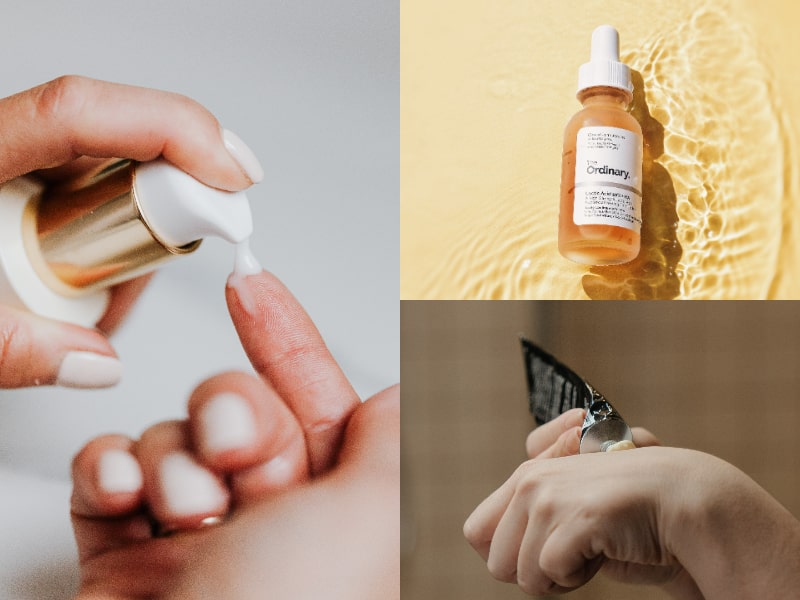
Having sensitive skin sounds like the end of the world because there’s a lot of skincare ingredients you need to avoid. But it doesn’t have to be like that. You can still achieve glowing skin with the right ingredients and skincare products. There are plenty of highly praised brands and skincare ingredients, vetted by dermatologists for anyone suffering from skin reactions.
Salicylic Acid, Hyaluronic Acid, Lactic Acid, and Ceramides are some of the skincare ingredients that are powerful while being extra kind to your skin! What’s more, they also provide your skin with light exfoliation while retaining moisture and are particularly great for soothing skin irritation. Your skin won’t feel overly tight, so rest assured that they’ll be a welcome addition to your skincare routine. So long sensitive skin!
Check out skincare products that are gentle enough for sensitive skin or the best Malaysian skincare brands for specific Malaysian skin types and tones. Looking for more beauty and skincare updates? Head over to Shopee Beauty Carou-Sale.

